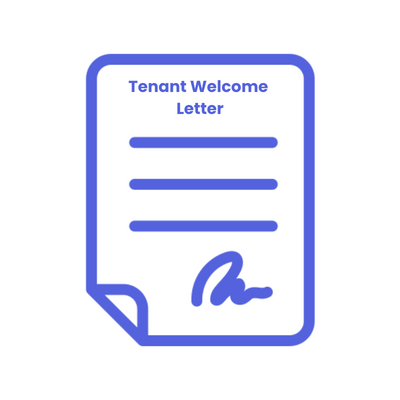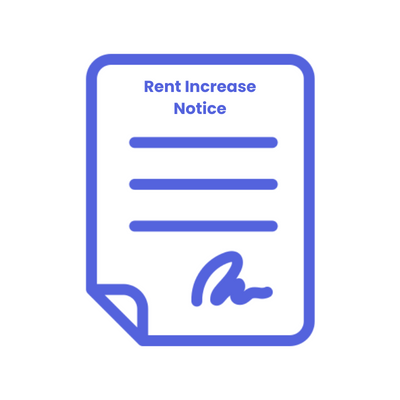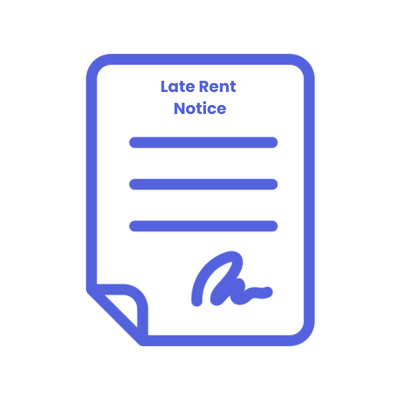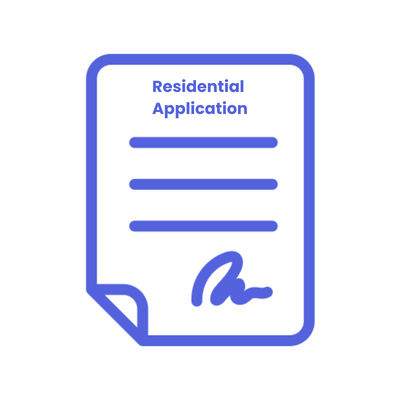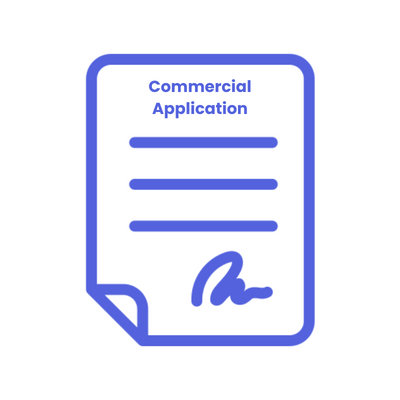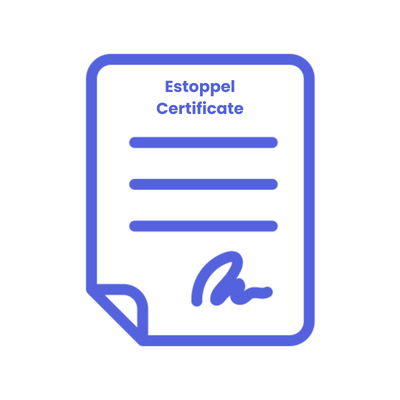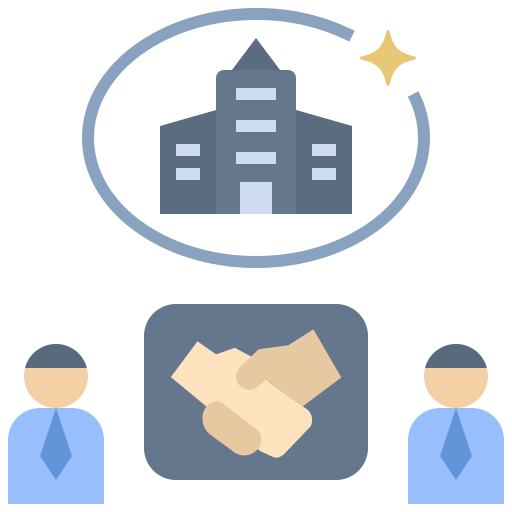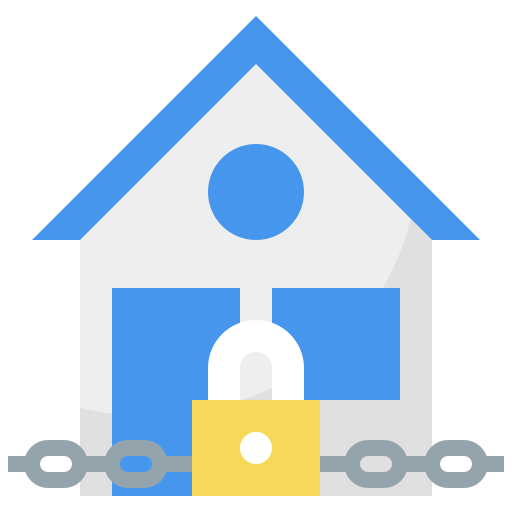Last Updated: April 2024
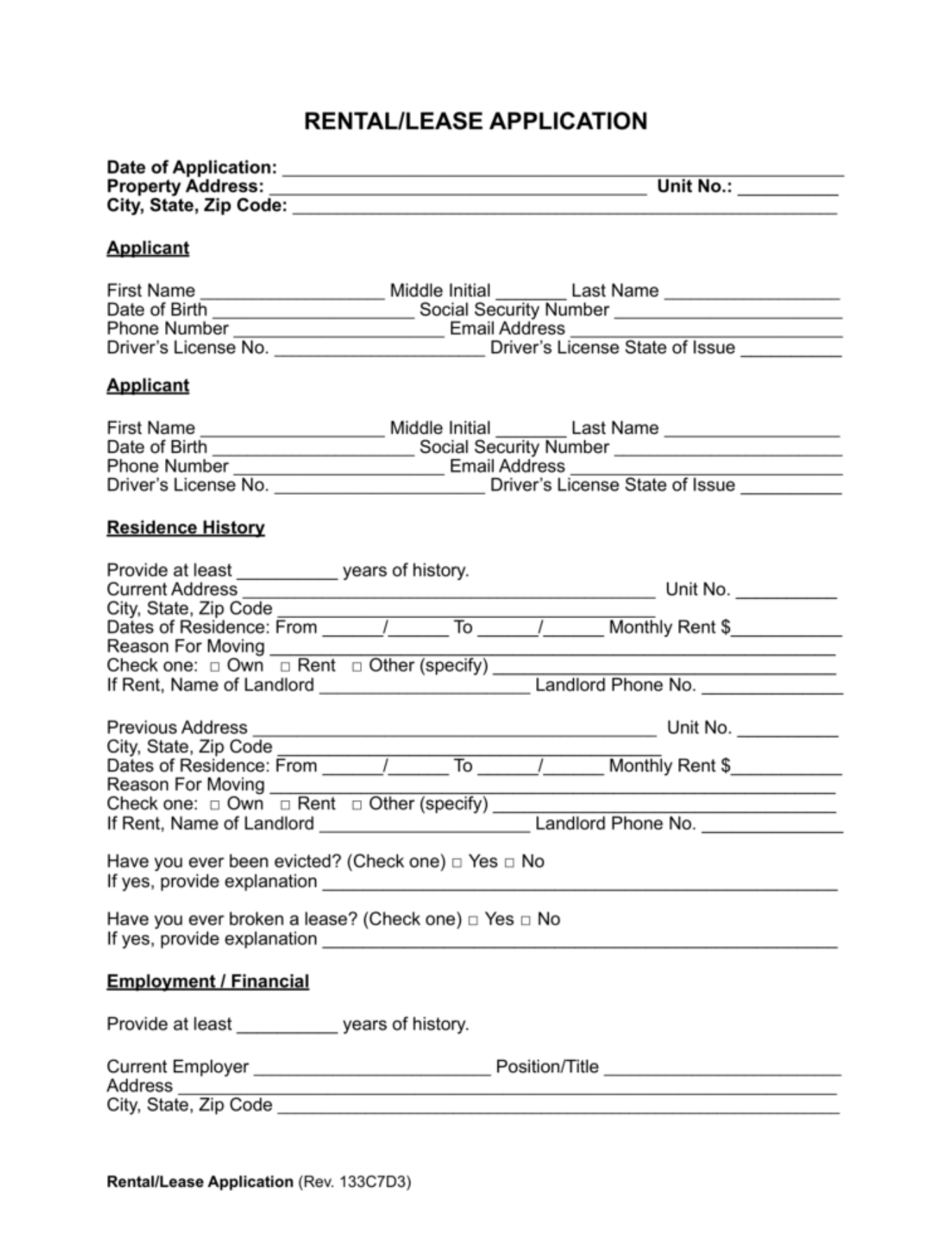
Rental applications are a key component in the tenant screening process for landlords and property managers. These detailed applications gather important information to evaluate and select qualified tenants for rental properties. Well-designed applications allow landlords to make compliant and informed leasing decisions. Thoughtfully constructed rental applications set the foundation for landlords and tenants to appropriately begin the rental process.
We’ve reviewed all residential lease applications across the internet, so you don’t have to.
Top 5 Free Residential Rental Application Templates
We’ve reviewed residential rental property lease applications across the internet. Below is our comprehensive list of the best free residential lease application templates for landlords and property managers, as well as our top pick.
RentalRealEstate Top Pick

LegalTemplates Residential Application
Why We Like the LegalTemplates Residential Application Template
The LegalTemplates application form is our favorite pick thanks to being both user-friendly and thorough, ensuring no critical information is missed during the application process.
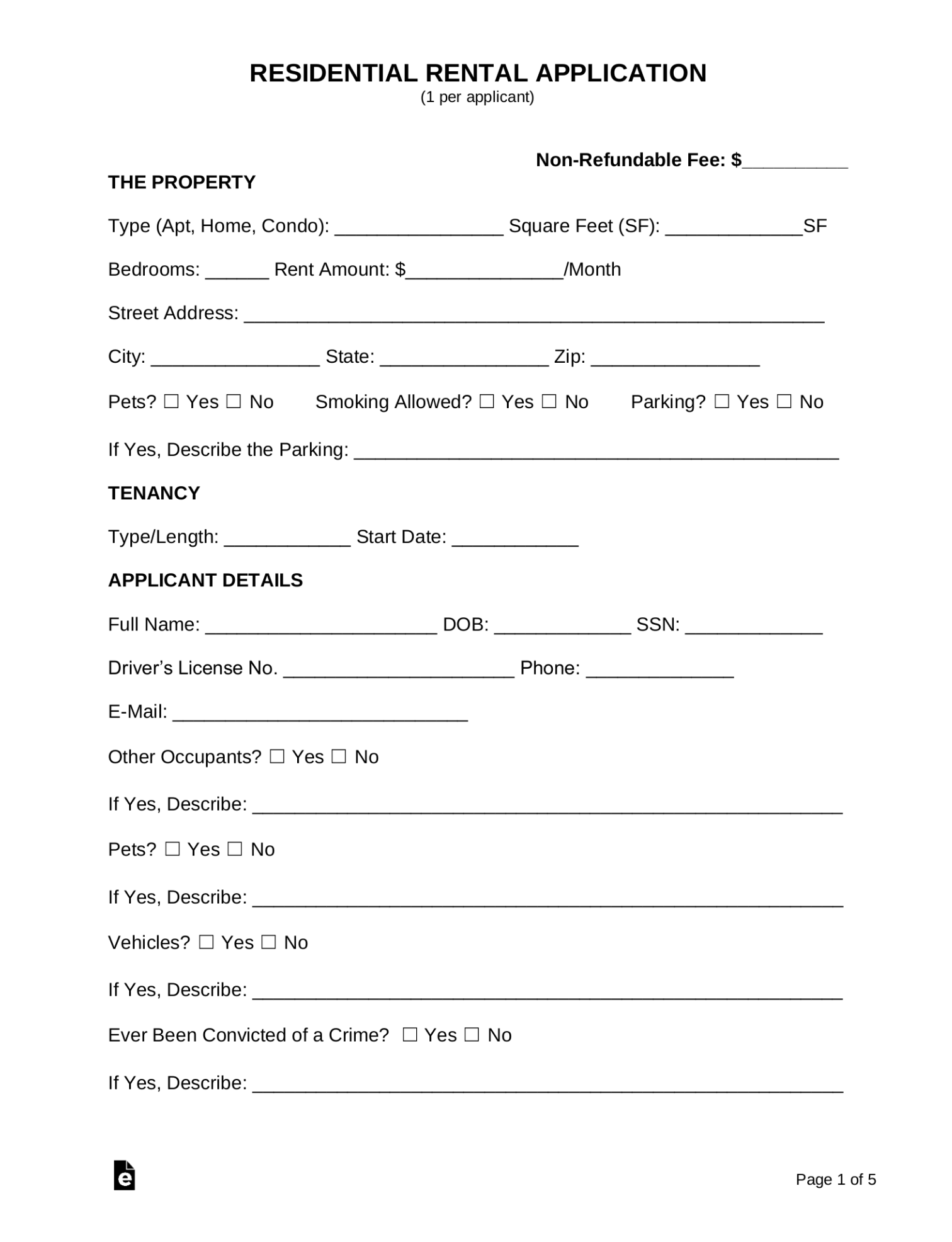
eForms Residential Application
Why We Like the eForms Residential Application Template
The eForms application form provides a simple and straightforward questionnaire, which fosters trust between potential renters and property managers or owners.
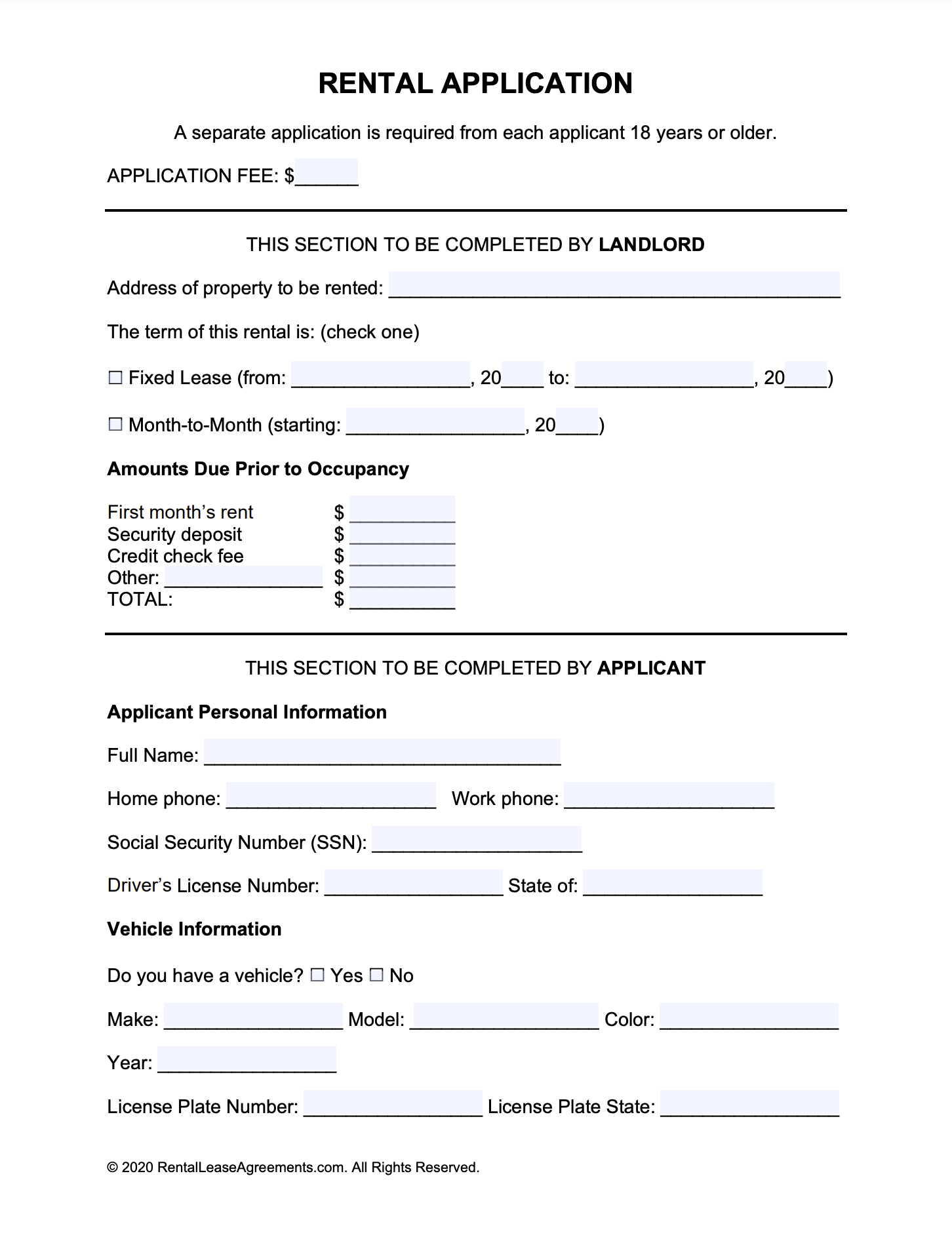
RentalLeaseAgreements.com Residential Application
Why We Like the RentalLeaseAgreements.com Residential Application Template
The RentalLeaseAgreements.com form is an efficient and simple document that streamlines the tenant evaluation process with its thoughtful organization.
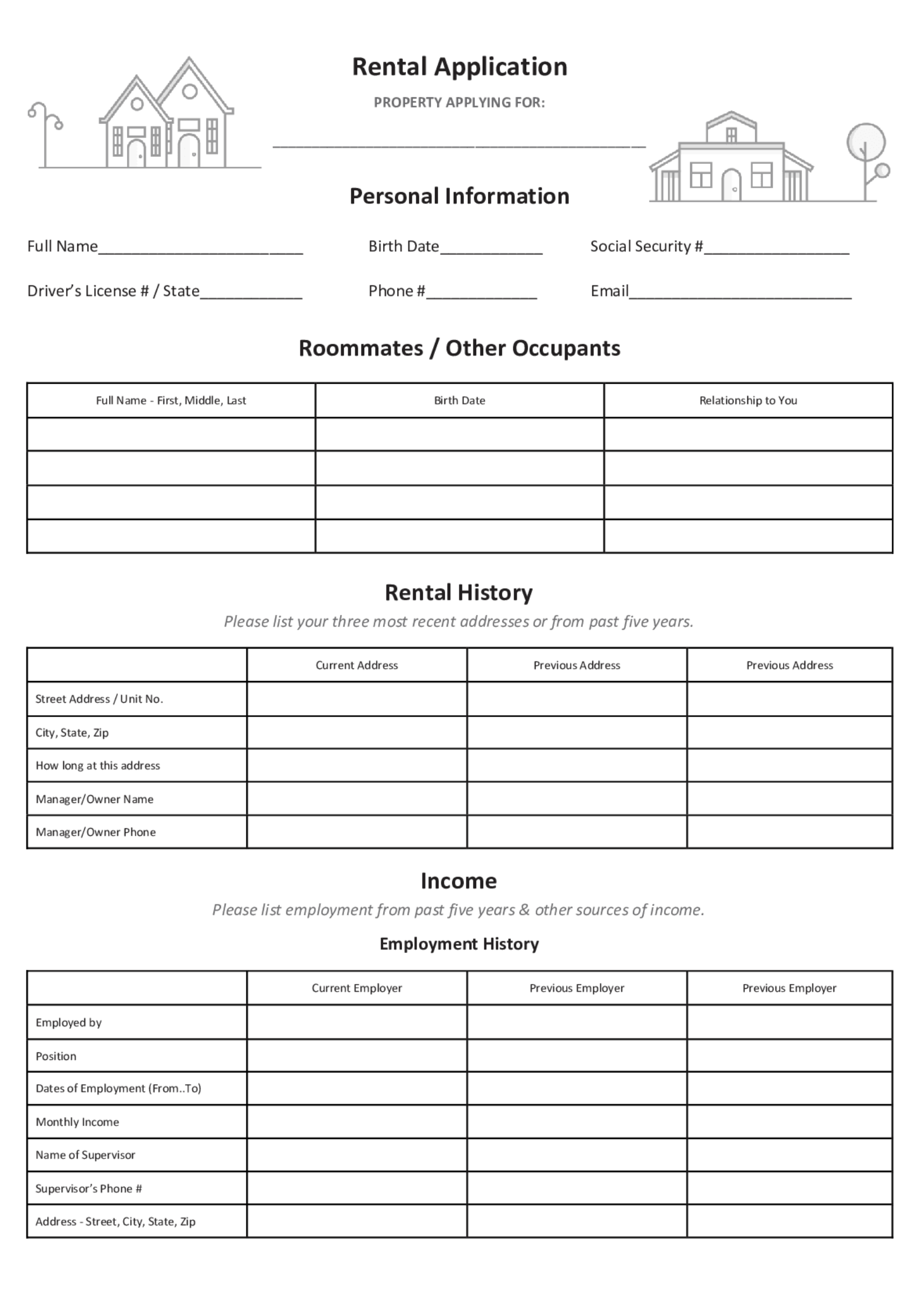
iPropertyManagement Residential Application
Why We Like the iPropertyManagement Residential Application Template
The iPropertyManagement.com application form has a clear layout, ensuring applicants provide all necessary details without feeling overwhelmed.
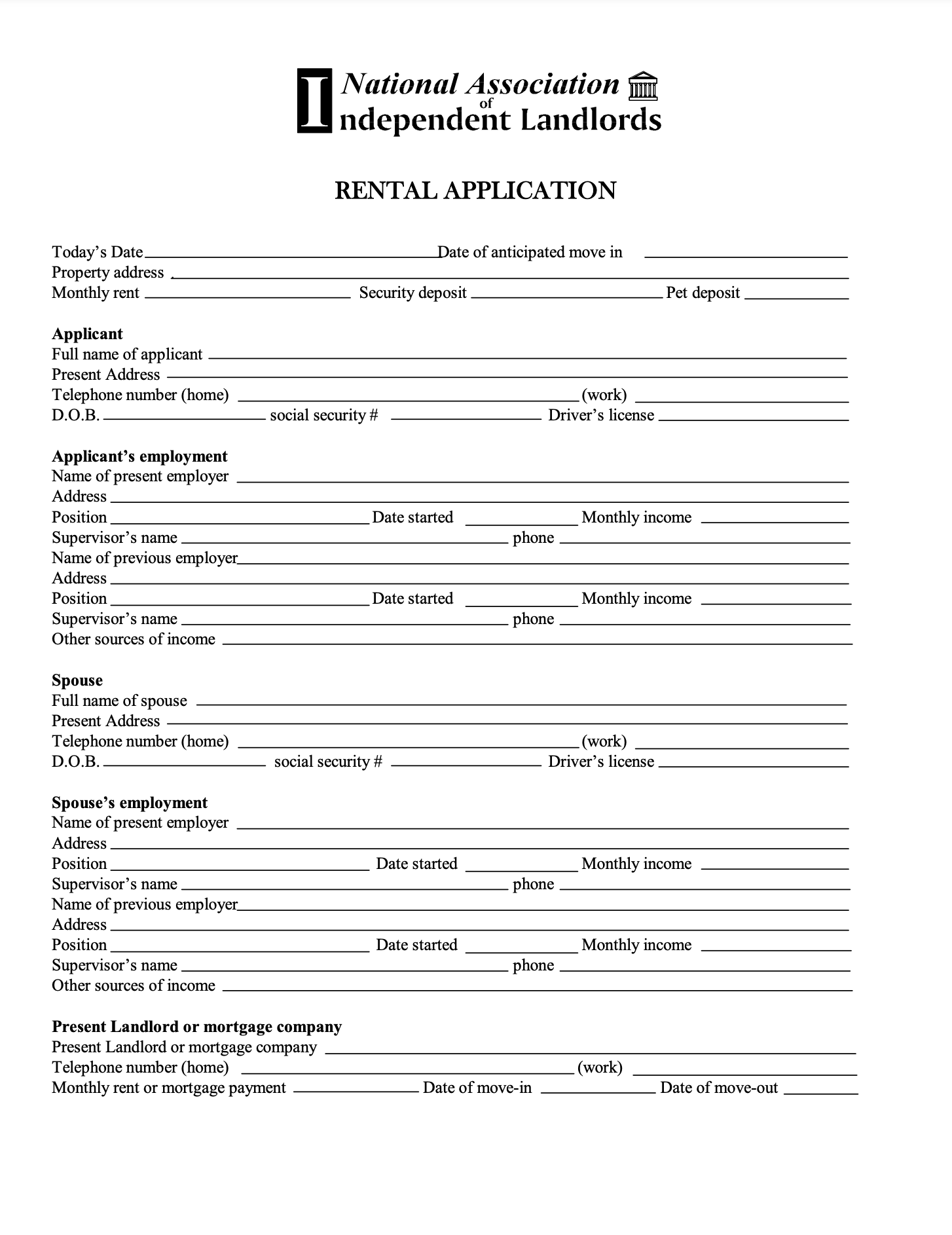
National Association of Independent Landlords Residential Application
Why We Like the N.A.I.L. Residential Application Template
The National Association of Independent Landlords form stands out with its comprehensive approach, capturing all the vital data points for a meticulous tenant assessment.
The #1 Rental Property Newsletter
Once a month, we send out an exclusive Rental Property Market Update with top stories, current mortgage rates, building products, and more. No spam and unsubscribe anytime.

What is a Residential Rental Application?
Residential Rental Application Definition
A “residential rental application”(also called a “residential lease application”) is a formal document that prospective tenants complete and submit when expressing interest in renting a residential property. This application gathers vital data, such as the applicant’s financial, employment, and rental history, enabling landlords or property management companies to assess their qualifications and reliability as renters. The information collected is used to determine the potential tenant’s suitability for the lease and to ensure they meet the property’s rental criteria.
Residential Rental Application Forms Explained
Residential lease applications are the first step in starting the leasing process. These forms typically request details like personal identification, current and past residences, employment details, and sometimes references. This collected information helps property owners gauge an applicant’s ability to pay rent and their likelihood of being a responsible tenant. Moreover, a comprehensive application can protect landlords by providing a basis for rejecting an application if necessary criteria aren’t met. For tenants, this process ensures they’re considered for properties that align with their financial capabilities.
Rental Property Residential Lease Application FAQ
What Information Should be Included in a Residential Rental Application?
Residential lease applications are used when renting out apartments or single family rental homes, to gather essential data about an applicant, from personal details to financial stability, offering a snapshot of their rental reliability. This form is crucial in the decision-making process, ensuring landlords and property managers can select tenants who align with the property’s requirements and standards. A comprehensive lease application should include:
- Personal Information: The applicant’s full legal name, date of birth, and relevant identification numbers help verify the individual’s identity.
- Contact Details: This includes the applicant’s current address, phone number, and email, ensuring open communication channels between both parties.
- Rental History: Detailed past addresses, contact information for previous landlords, and reasons for relocating provide insight into the applicant’s track record as a tenant.
- Employment and Income Details: Information about the applicant’s current employment, job title, and proof of income ensures they possess the financial capacity to meet rental obligations.
- Personal References: Names and contacts for 2-3 non-family individuals who can vouch for the applicant’s character and reliability.
- Number of Occupants: Details on how many people intend to reside in the property help landlords understand occupancy levels.
- Pet Details: Information about any pets, including type and size, is vital, especially for properties with specific pet policies.
- Vehicle Information: For properties with parking considerations, noting the applicant’s vehicle type and registration can be helpful.
- Authorization: A dedicated section where the applicant agrees to background and credit checks, ensuring transparency and consent in the evaluation process.
How is Private Information Handled on a Rental Application?
Landlords and property managers performing residential tenant screening should treat all information provided on a rental application with strict confidentiality. Many jurisdictions have privacy laws and regulations that dictate how personal information should be stored, shared, and disposed of. It’s generally recommended that landlords securely store applications and only share them with individuals directly involved in the rental decision. After a reasonable period, or once the information is no longer needed, landlords should securely dispose (e.g. paper shredder) of the applications.
Can Landlords Charge a Fee for Processing a Rental Application?
In many areas, landlords or property management companies charge a nominal fee to cover the costs associated with processing a rental application, such as credit checks or administrative efforts. However, the amount and permissibility of such fees vary by jurisdiction. Potential tenants should always be informed upfront about any application fees, and landlords should ensure they are in compliance with local regulations when charging these fees.
Lease Application Tools
Tenant
Screening Software

Using a tenant screening software to process residential lease applications is an efficient and popular tool to qualify potential applicants during the screening process of filling a vacant unit.
Property Management Software

Property management software helps owners, managers, and tenants handle all aspects of management such as rent payment, property maintenance, marketing, and much more.
Contract & Document Software

Online rental property document software offers customizable templates and digital management solutions for forms, contracts, and letters related to leasing and property management.
Search Rental Real Estate
Try searching out site for hundreds of rental property topics ranging from property management, investor tool reviews, investment research, and more.
More Rental Property Notices & Letters
Rental Property Law Guides
About the Author

Ryan Nelson
I’m an investor, real estate developer, and property manager with hands-on experience in all types of real estate from single family homes up to hundreds of thousands of square feet of commercial real estate. RentalRealEstate is my mission to create the ultimate real estate investor platform for expert resources, reviews and tools. Learn more about my story.
Disclaimer: The information provided on this website does not, and is not intended to, constitute financial and/or legal advice. As such, all information, content, and materials available on this site are for general informational purposes only. See Our Disclaimer Page for more information.

